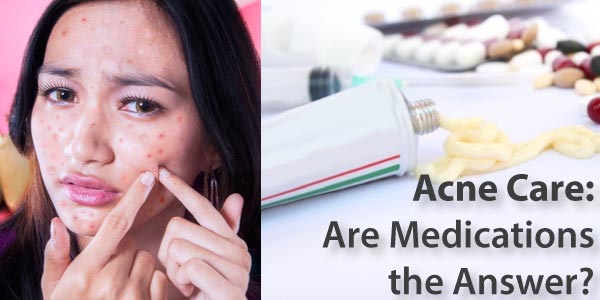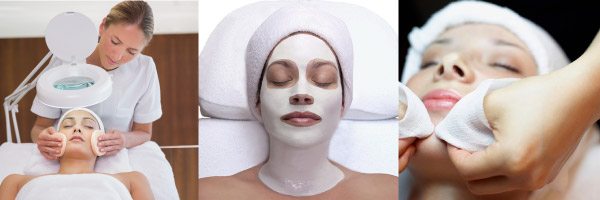
Living with acne can be incredibly difficult. Not only can acne be physically painful, it can be emotionally damaging. Many who suffer from acne have tried every trick out there, have bought from every infomercial, and have tried covering up the blemishes with tons of concealer. Yet, the acne never seems to subside, which leads many people to consider Accutane or similar drugs.
Oral Medications
The brand name drug Accutane has been discontinued. The generic form, isotretinoin, is still manufactured under various brand names. Essentially, isotretinoin is super-concentrated vitamin A. It is taken orally under the care of a medical professional. Ideally, it mitigates the amount of oil that oil glands in the skin produce, helping to clear clogged pores.
Other oral medication options include antibiotics such as amoxicillin, ampicillin, tetracycline, doxycycline, erythromycin, etc. These prescription drugs are generally prescribed in high doses which, with continued use over an extended period of time, can lead to antibiotic resistance.
Oral antibiotics are often not enough to effectively treat acne and are frequently used in combination with topical medications.
Topical Medications
Topical acne medications are prescription drugs available in creams, gels, liquids, etc. and are applied to the skin. Most topical acne drugs fall into one of these categories: antibiotics or retinoids.
Topical antibiotics are usually good for treating inflamed acne but don’t do much for unclogging pores so, blackheads and whiteheads tend to remain. Retinoids work by stimulating cell turnover (i.e. exfoliating), therefore they generally work best when treating non-inflamed acne such as blackheads and whiteheads.
Some of the most commonly prescribed topical acne drugs include DUAC® Gel, Differin® Gel, and tretinoin. These can be very effective when used properly but, they can also have negative side effects.
Side Effects
For many, isotretinoin is a miracle drug that can completely clear the skin. However, it comes with side effects that may be too negative to bear. For example, isotretinoin has been known to cause a long list of side effects such as birth defects, as well as liver damage and depression. These risks can be enough to repel potential users away from the drug.
If you suffer from acne and have considered starting oral antibiotics to lessen it, be sure to exhaust other options first. Continuous use of oral antibiotics may prevent the drug from working effectively when used in the future to treat other types of infections. More common side effects may include upset stomach, sun sensitivity, and medication interactions.
Common side effects that accompany topical acne medications can include redness, dryness, inflammation, irritation, sun sensitivity, and rashes. Applying the medication as directed, alongside a proper skin care routine, will help to minimize these effects. Most of these negative effects will diminish as you continue to use the medication.
Lifestyle
Medications are not the only solution to fighting acne. Often, a multi-prong approach is necessary to see results. In addition to your skin care routine and prescriptions, there are a number of lifestyle factors to consider when treating acne.
Lifestyle Tips for Reducing Acne:

- How often do you change your pillow cases and bed linens? Swapping out your pillow cases and bed linens more frequently can have a significant effect on diminishing your acne because bacteria, sweat, oil, and product residue can build up in the fibers and lead to further breakouts.
- Is your acne worse on the side of your face where your cellphone rests? Even if it’s not, cleaning your cell phone daily will limit the amount of bacteria, oil, and old makeup residue that comes into contact with your skin.
- Boost omega-3s. Many acne sufferers see acne improve when they increase their intake of omega-3 essential fatty acids. Omega-3s can be found in fish (wild salmon being one of the best sources), fortified eggs, flaxseed, supplements, and more.
- Reducing intake of milk and dairy products can have a drastic effect in reducing acne lesions in some people. Try limiting your dairy intake and replacing dairy foods with soy-based alternatives.
- Eat more fruits and vegetables! Fruits and veggies contain beneficial antioxidants and micronutrients that support a healthy body and skin.
- No picking! Try to keep from touching your face and picking at acne lesions. Picking, self-extracting, and excessive touching can lead to the spreading of bacteria which will results in more acne and can leave permanent scars.
Visit an Esthetician

Finding a skilled esthetician who will conduct a detailed skin analysis and treat your skin with facials or peels on a regular basis can have a vast improvement in your skin.
Your esthetician will be able to design a proper skin care routine that fits your skin and lifestyle. She will also be able to recommend which products and treatments can help reduce acne scarring and post-inflammatory hyperpigmentation (PIH).
Your esthetician can act as a supplement to your dermatologist or physician and assist with diminishing the irritating effects of certain prescription medications. In some instances, your esthetician will treat your acne topically with procedures and products while your doctor treats your acne internally with oral medications.
You don’t have to be ashamed of your skin. Simple changes may make all the difference.
These statements have not been evaluated by the FDA. Nothing contained within this website should be construed as medical advice. Always consult a qualified physician before starting or stopping any medication or supplement or making any major dietary changes. Posts are not intended to diagnose, treat, or cure disease. DUAC is a registered trademark of Stiefel Laboratories, Inc. Differin is a registered trademark of Galderma Laboratories, L.P. All trademarks are the property of their respective owners.
Learn more about acne and how to treat it in our industry-leading esthetics program. Call us today at (847) 329-9174 to learn more about our program or schedule your campus tour.



